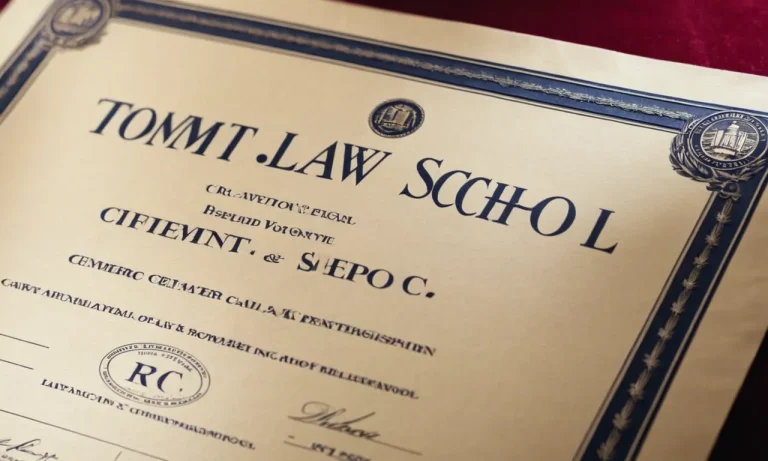As a high school student, the junior year is a pivotal time that can shape your academic journey and future prospects. With college applications looming and the pressure to excel mounting, it’s crucial to understand the classes you’ll be taking and how they can impact your goals.
If you’re short on time, here’s a quick answer to your question: Juniors in high school typically take a combination of core academic classes, such as English, math, science, and social studies, as well as elective courses that align with their interests and future plans.
In this comprehensive article, we’ll delve into the details of the classes juniors take in high school, exploring the core curriculum, elective options, and how these courses can prepare you for college and beyond.
We’ll also discuss strategies for balancing academic rigor with extracurricular activities and personal growth.
Core Academic Classes for Juniors
As high school students progress into their junior year, they typically delve deeper into core academic subjects to prepare for college or future careers. These classes are designed to challenge students intellectually and develop critical thinking skills.
Let’s explore some of the key courses juniors often take:
English Literature and Composition
This course focuses on analyzing and interpreting literary works from various genres, time periods, and cultures. Students enhance their reading comprehension, critical thinking, and writing abilities through in-depth discussions, essays, and research projects.
According to the College Board, the AP English Literature and Composition course aims to “engage students in careful reading and critical analysis of imaginative literature.”
Advanced Mathematics (Algebra II, Precalculus, or Calculus)
Juniors often take advanced math courses like Algebra II, Precalculus, or even Calculus, depending on their academic level and future goals. These classes build upon foundational math concepts and introduce more complex topics, such as trigonometry, analytical geometry, and calculus principles.
According to the National Council of Teachers of Mathematics, proficiency in mathematics is essential for success in college and careers.
Laboratory Sciences (Chemistry, Physics, or Biology)
Science courses like Chemistry, Physics, or Biology are typically taken by juniors to fulfill graduation requirements and prepare for college-level science courses. These classes combine theoretical knowledge with hands-on laboratory experiments, fostering critical thinking, problem-solving, and data analysis skills.
The National Science Teaching Association emphasizes the importance of engaging students in scientific inquiry and developing a deep understanding of scientific concepts.
U.S. History or World History
Understanding the past is crucial for navigating the present and shaping the future. Juniors often take U.S. History or World History courses to gain a comprehensive understanding of historical events, political systems, economic trends, and cultural developments.
These classes encourage critical analysis of primary sources, debate, and research. According to the American Historical Association, studying history fosters “an understanding of the human experience and the ability to think critically about the world.”
While these are some of the core academic classes juniors typically take, many high schools also offer a wide range of electives and specialized courses to cater to students’ diverse interests and career aspirations.
Ultimately, the junior year serves as a crucial stepping stone towards college readiness and personal growth. 😊
Elective Courses and Their Importance
In addition to the core academic subjects, high school students have the opportunity to explore their interests and passions through a wide range of elective courses. These electives not only provide a well-rounded educational experience but also help students discover their talents and potential career paths.
Let’s delve into some popular elective categories and their significance.
Foreign Languages
Learning a foreign language is an invaluable skill in today’s globalized world. By taking courses like Spanish, French, German, or Mandarin Chinese, students develop cross-cultural communication abilities and gain a deeper appreciation for diverse cultures.
According to a study by the American Council on the Teaching of Foreign Languages, students who study a foreign language perform better on standardized tests and have improved cognitive abilities. 🌐
Visual and Performing Arts
Electives such as art, music, dance, and drama allow students to unleash their creativity and express themselves in unique ways. These courses not only foster artistic talents but also teach valuable skills like problem-solving, collaboration, and self-discipline.
A report by the National Endowment for the Arts highlights that arts education positively impacts academic achievement, critical thinking, and social-emotional development. 🎨🎭
Career and Technical Education (CTE) Courses
CTE courses provide hands-on training and prepare students for various careers. From culinary arts and automotive technology to computer programming and healthcare, these electives equip students with practical skills and knowledge for their future professions.
According to the Association for Career and Technical Education, CTE students have higher graduation rates and are more likely to pursue postsecondary education or enter the workforce directly. 👷♀️💻
Advanced Placement (AP) and Honors Classes
For academically motivated students, AP and honors courses offer a rigorous curriculum and the opportunity to earn college credits while still in high school. These challenging courses not only prepare students for the demands of higher education but also demonstrate their ability to handle college-level work.
According to the College Board, over 2.8 million students took at least one AP exam in 2022, reflecting the growing popularity and importance of these advanced courses. 🎓
Elective courses are a vital part of the high school experience, allowing students to explore their interests, develop valuable skills, and prepare for their future endeavors. By taking advantage of these diverse offerings, students can cultivate their passions, discover new talents, and embark on a path towards personal growth and success.
Don’t underestimate the power of electives – they can truly shape your high school journey and beyond! 👏🎉
Preparing for College Admissions
Building a Strong Academic Profile
One of the most crucial aspects of preparing for college admissions is building a strong academic profile. This involves maintaining a high GPA and taking challenging courses, such as Advanced Placement (AP) or International Baccalaureate (IB) classes.
These rigorous courses not only demonstrate a student’s ability to handle college-level work but also provide an opportunity to earn college credits, potentially saving time and money in the long run.
According to College Board data, in 2021, over 2.8 million students took at least one AP exam, with many students earning college credit or placement.
Extracurricular Activities and Leadership Roles
In addition to academic excellence, colleges value well-rounded students who have engaged in extracurricular activities and taken on leadership roles. Participating in clubs, sports, volunteer work, or community service can showcase a student’s interests, talents, and commitment beyond the classroom.
Leadership roles, such as serving as a club officer or team captain, demonstrate responsibility and initiative. According to a National Association for College Admission Counseling (NACAC) report, extracurricular activities are considered “important” or “very important” by over 60% of colleges when evaluating applicants.
Standardized Testing (SAT/ACT)
While the importance of standardized tests like the SAT and ACT has been debated in recent years, many colleges still require or recommend these scores as part of the admission process. Preparing for and performing well on these tests can be a crucial factor in college admissions, particularly at highly selective institutions.
According to College Board data, the average SAT score for the class of 2021 was 1103 out of 1600. However, it’s important to note that an increasing number of colleges are becoming “test-optional” or “test-blind,” meaning they do not require or consider standardized test scores for admission.
College Application Process and Timelines
Navigating the college application process can be daunting, but staying organized and meeting deadlines is essential. Students should research college requirements, application deadlines, and financial aid opportunities well in advance.
Many colleges have early action or early decision deadlines in November or December of a student’s senior year, while regular decision deadlines typically fall between January and March. According to National Center for Education Statistics data, in 2020, over 19 million students were enrolled in college, highlighting the importance of a well-planned application process.
By focusing on building a strong academic profile, engaging in extracurricular activities and leadership roles, preparing for standardized tests, and staying organized throughout the application process, high school juniors can set themselves up for success in their college admissions journey.
Remember, the earlier you start preparing, the better positioned you’ll be to showcase your unique talents and achievements to your dream colleges! 🎓
Balancing Academics and Personal Growth
Navigating the high school years can be a delicate balancing act for juniors. On one hand, they are faced with the pressure of excelling academically to secure a bright future. On the other hand, personal growth and self-discovery become increasingly important during this pivotal stage.
Finding the right equilibrium is crucial for their overall well-being and success.
Time Management Strategies
Effective time management is a skill that can greatly alleviate stress and help juniors stay on top of their academic and extracurricular commitments. Techniques such as creating a schedule, prioritizing tasks, and avoiding procrastination can go a long way.
According to a study by the American Psychological Association, students who practice good time management strategies tend to have higher grades and report lower levels of stress. 😊 Utilizing tools like planners, calendars, or productivity apps can also be incredibly helpful.
Stress Management and Mental Health
The demands of high school can take a toll on a student’s mental health. It’s essential for juniors to recognize the signs of stress and learn healthy coping mechanisms. Engaging in physical activity, practicing mindfulness or meditation, and seeking support from counselors or trusted adults can make a significant difference.
The National Alliance on Mental Illness reports that one in five teens experiences a mental health condition, underscoring the importance of addressing this issue. 🙏 Don’t be afraid to ask for help when needed!
Developing Interests and Passions
While academics are undoubtedly important, high school is also an opportune time for juniors to explore their interests and passions. Joining clubs, participating in sports or artistic pursuits, or volunteering in the community can not only enrich their personal growth but also provide valuable experiences for college applications.
According to a survey by College Board, students who engage in extracurricular activities tend to have higher GPAs and are more likely to be accepted into their top-choice colleges. 🎉 So, don’t be afraid to step out of your comfort zone and try something new!
Building Resilience and Perseverance
High school can present numerous challenges and setbacks, but it’s essential for juniors to develop resilience and perseverance. Facing obstacles head-on, learning from failures, and maintaining a growth mindset can help them cultivate these valuable traits.
A study by American Psychological Association found that resilient students are more likely to achieve academic success and have better overall well-being. 💪 Remember, every challenge is an opportunity to grow and become stronger.
By striking the right balance between academics and personal growth, juniors can not only thrive in high school but also lay the foundation for a fulfilling and successful future. Embracing time management strategies, prioritizing mental health, pursuing passions, and building resilience are key to navigating this exciting yet demanding phase of life.
👍
Conclusion
The junior year of high school is a critical juncture that demands careful planning, dedication, and a balanced approach. By understanding the core academic classes, exploring elective options, and preparing for college admissions, you can set yourself up for success in your future endeavors.
Remember, academic excellence is just one aspect of your high school journey. Embrace opportunities for personal growth, cultivate your interests, and develop resilience to navigate the challenges that lie ahead.
With the right mindset and support system, you can thrive during your junior year and beyond.






